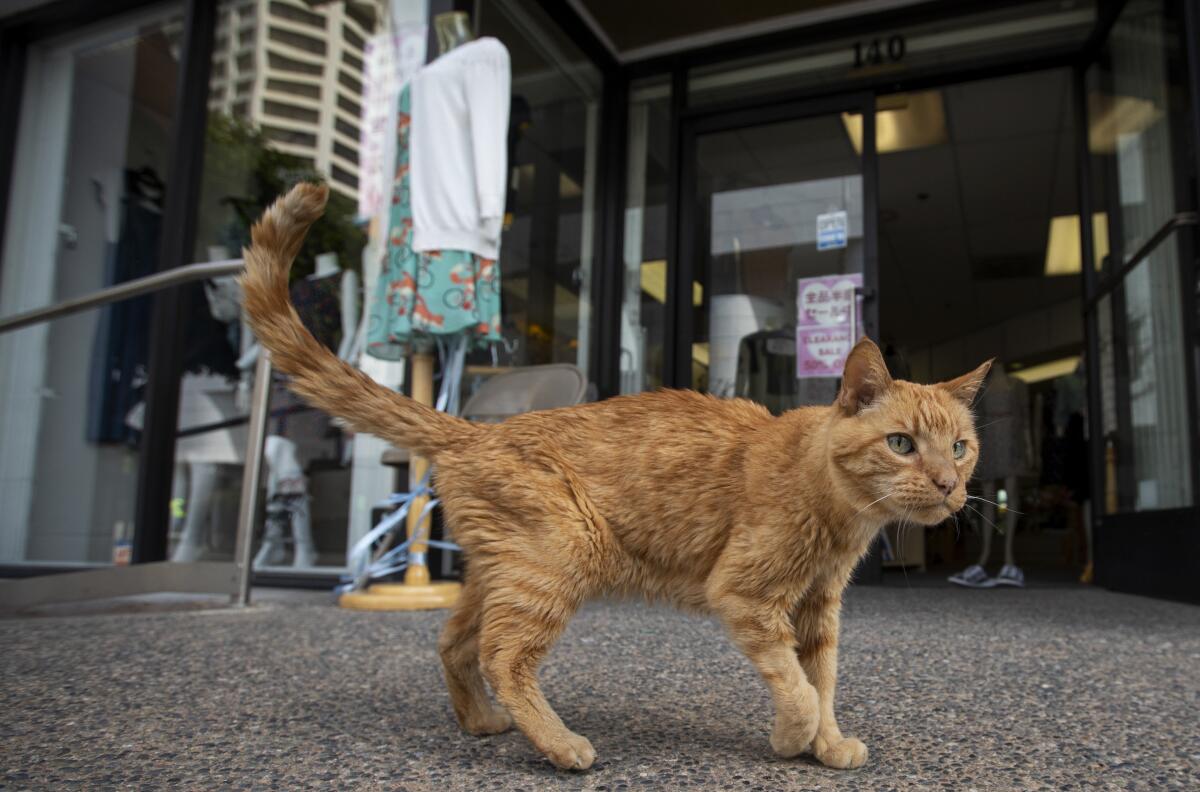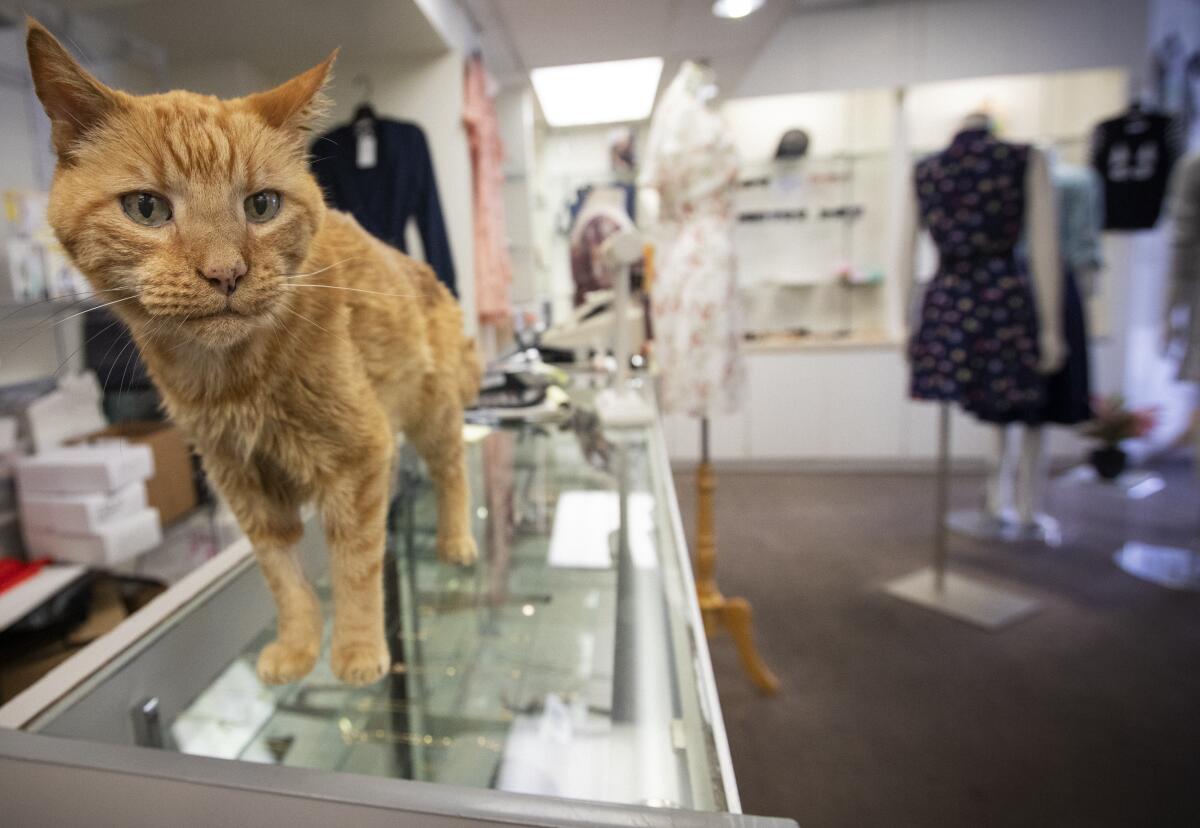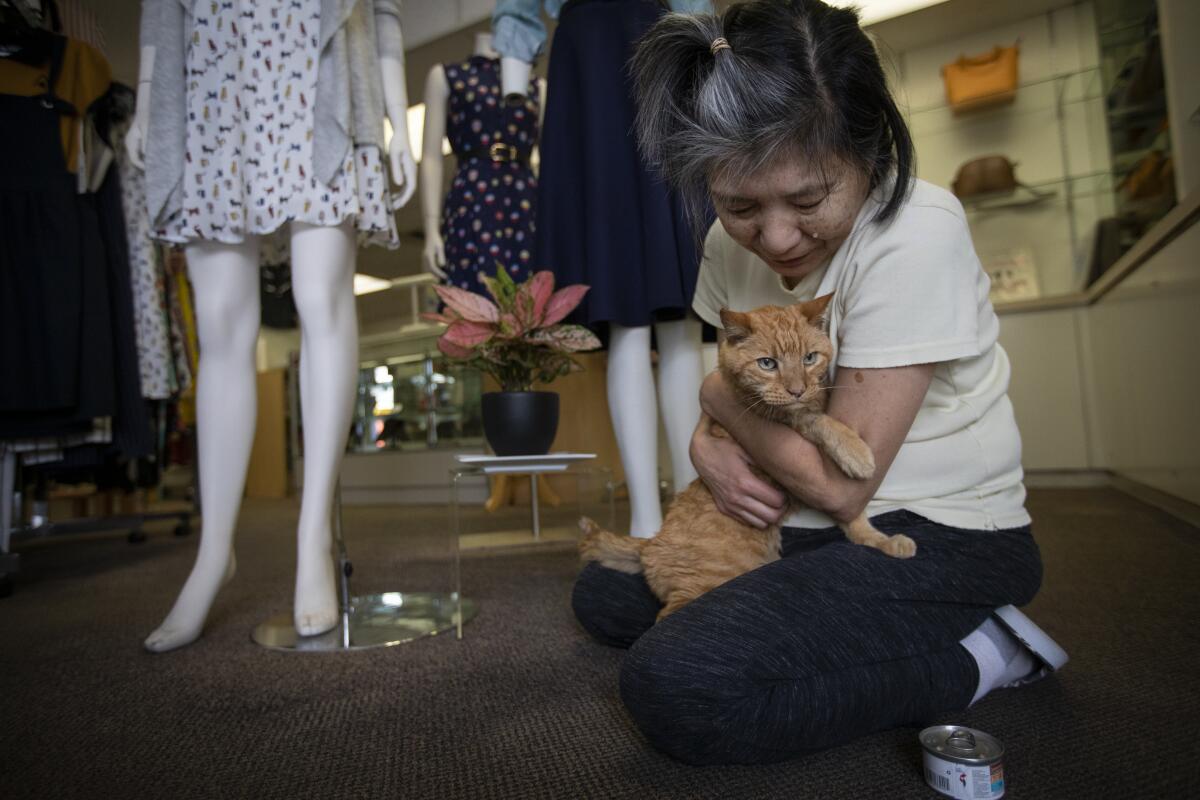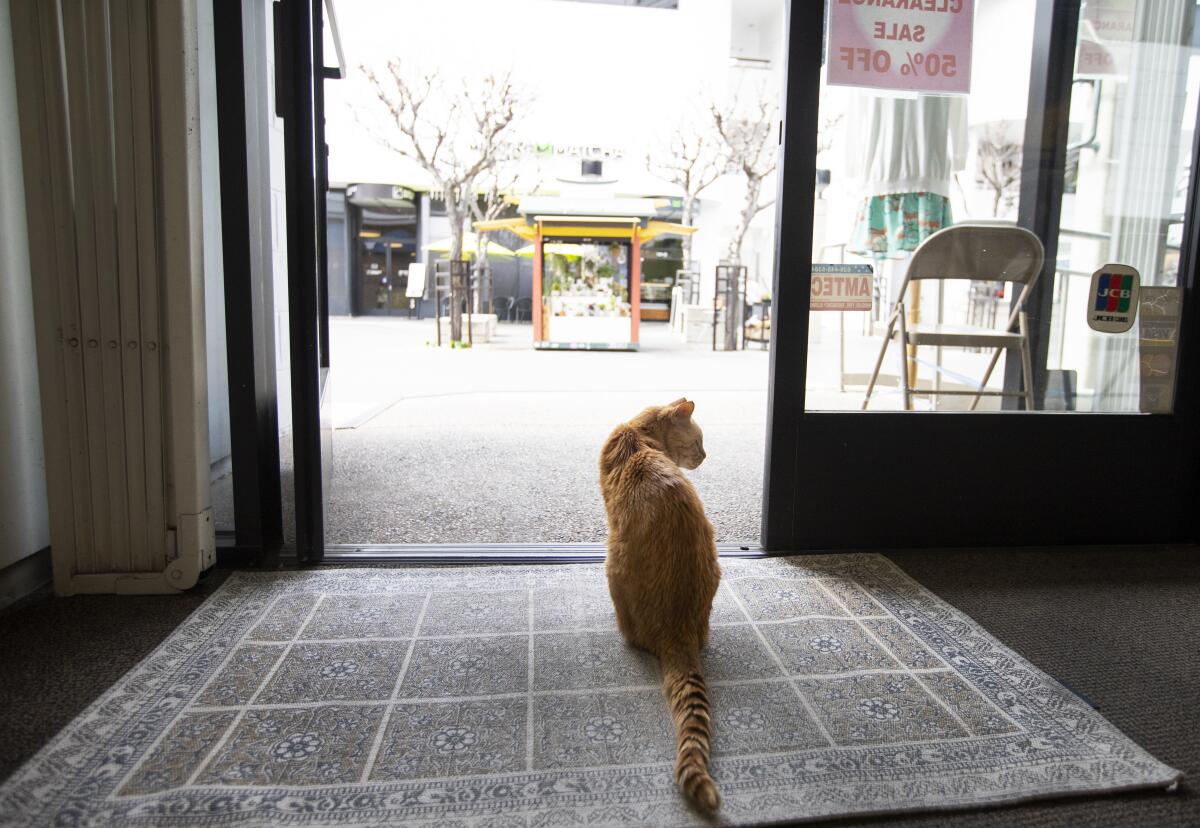Mr. Sherman, Little Tokyo’s 23-year-old feline ‘mayor,’ keeps purring along

- Share via
The youngsters still came to see their feline elder, Mr. Sherman.
Liz Ito, a Los Angeles artist, was just 11 when she first met the American tabby who reached the grand age of 23 this month. She had accompanied her mother to a Little Tokyo boutique known for selling whimsical prints.
Her mama bought a print dress, she remembered, navy with a Peter Pan collar and splashed with frolicking wildlife. She passed the time petting “a cute little cat who seemed to own the place and was very confident in his approach.”
Ito’s friend, Highland Park resident Mary Wilson, recalled visiting the store back in sixth grade.
“There was a furry being lounging on a chair, and I didn’t want to disturb him, but he came right up to sniff me,” she said. “He was talkative. Curious, too. I think he could smell my two cats and I was wishing I could have taken him home since they needed an older someone to watch them. It’s so special that he’s still around.”

Before the Los Angeles lockdown sparked by the coronavirus, both women, 19, returned to downtown L.A. for an izakaya meal. They strolled outside the shop called Ashiya, hoping to say hello to the domestic short-haired cat usually found near owner Kyoko Kimball.
Mr. Sherman, Little Tokyo’s feline “mayor,” had just turned 23.
Birthdays now are a quiet rite of passage for the purring, throaty ambassador, who’s been familiar to shoppers, merchants and passers-by in the cultural district where he has held court at the store facing the popular Marukai Market.
Before the warnings sounded about the global pandemic, Mark Richards, who was picking up children’s gifts and office supplies at a Kinokuniya bookstore in neighboring Weller Court, said he often saw Sherman in front of the boutique, keeping watch on foot traffic.
“He has such intelligent eyes. Not much goes past him, it’s like he’s committing the scene to memory to tell someone about it later,” said the medical researcher from Glendale, 43.
At this stage in his life, Sherman, suffering from hyperthyroidism and kidney disease that caused his weight to plummet to eight pounds, sticks to a routine.
He rises early, takes medication for his condition, which makes him more active around 11:30 a.m., and naps after lunch. He lets it be known that he does not care for leftovers.
“Everything has to be fresh,” says Kiyoko Kimball, the caregiver who adopted him more than 16 years ago and spends $1,000 monthly on his food, prescriptions and fluid therapy. “He’s retired. I give him Social Security money. And you know, he thinks he’s a person. We communicate every day.”
Kimball, 66, used to own multiple retail businesses, including one in a fancy hotel along Wilshire Boulevard, selling handbags and jewelry. Recently, she’s been working at an office in the back of her shop because “Mr. Sherman knows the places around here,” she said, while bustling between store aisles where foxes, pugs and koalas danced across print clothing, beckoning to buyers.
“Where else would I take him? Beverly Hills?” she asked. “It’s not as casual, low-key.”
Four years ago, in early March, a stranger “catnapped” Mr. Sherman outside Marukai Market.

Security video showed a female figure picking him up and taking him away. Kimball distributed fliers, calling then-L.A. Mayor Antonio Villaraigosa for help. An KABC-TV News team arrived at the scene for interviews. About two weeks later, Sherman reappeared, possibly accompanied by the same woman — no questions asked.
“All my customers had been looking for him and I just wanted him back — I didn’t need to ask for any reasons,” Kimball said. She resolved then to be much more careful and “don’t let him out of my sight.”
She always calls Sherman “Mr. Sherman,” she says, since “he has that image” about him. Both caregiver and pet have evolved long enough to see Little Tokyo transform from mom-and-pop shops to a more urban, diverse district dotted with new apartments, filled with pet owners.
“Definitely, younger tenants are moving in, but I’m glad Sherman is still here to have a sense of history,” Ito said.
“Not every kitty can make it to such a senior age,” but Sherman has been “both lucky in terms of health and family care,” said Lauren Matta, a registered veterinary technician working with Dr. Hye-Ok Chung, Sherman’s veterinarian at the Little Tokyo Pet Clinic. They listed “affection from a loving family and wellness management” as factors that helped the cat live so long — Chung estimated Sherman was born on March 22, 1997, after examining his teeth and physical condition — compared with outdoor felines who on average only live for seven years.
Matta described Sherman as “an outgoing individual who loves playing shopkeeper and greeting his guests. He has quite a voice.”
Ito plans to bring her school-age cousins to pay their respects. “Little Tokyo is a symbol and Sherman is a symbol,” she said. “Both are treasures.”

More to Read
Sign up for Essential California
The most important California stories and recommendations in your inbox every morning.
You may occasionally receive promotional content from the Los Angeles Times.











